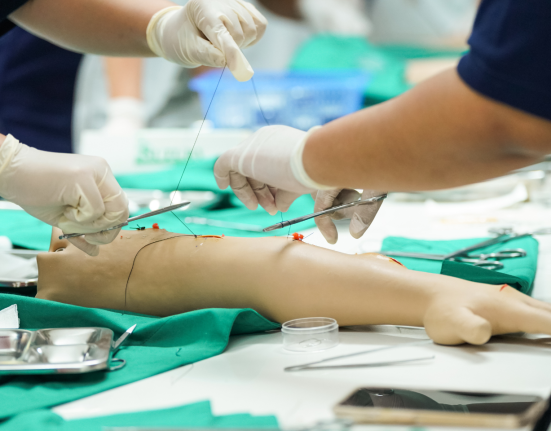Stepping into your first hospital ward as a newly qualified nurse is both exciting and nerve-wracking. After all those years of study, sleepless nights, and clinical hours, you’re finally ready to begin your career. But where do you start when it comes to landing your first nursing job in Malaysia or Singapore?
If you’re feeling unsure, don’t worry—this guide walks you through the essential steps. From licensing to interviews and workplace culture, we’ll help you feel more prepared and confident as you take this big step into the healthcare world.
1. Make Sure You’re Licensed to Practise
Before applying for any nursing role, make sure your credentials and licensing are in order.
For Malaysia:
- Complete a recognised Diploma or Degree in Nursing.
- Register with the Malaysian Nursing Board (Lembaga Jururawat Malaysia).
- Apply for your Annual Practising Certificate (APC)—this is your legal permit to work as a nurse.
👉 Need help with this step? Here’s a complete guide to the nursing license process in Malaysia to walk you through it.
For Singapore:
- Register with the Singapore Nursing Board (SNB) and possess a valid Practising Certificate (PC)
- If you’re trained outside of Singapore, you may need to pass the Licensure Exam before obtaining an SNB License
- Submit supporting documents like official academic transcripts, certificates or clinical training records, and English language test results (IELTS/OET).
Important: If you’re a foreign-trained nurse, you are generally require a job offer from a recognised healthcare institution before SNB will process your registration. The employer’s HR team typically initiates your SNB application. Make sure your reference letters clearly outline your clinical experience and performance—preferably signed by a Nursing Director or Head of Nursing.
Sorting this early sets you up for a smooth and timely application to your first nursing job.
2. Craft a Resume That Tells Your Story
Your resume doesn’t need to be overly complex—it should simply reflect your qualifications and who you are as a nurse.
Include:
- Nursing credentials: Education, license and relevant certifications (e.g. CPR, BLS).
- Clinical experience: highlight any rotations in areas like A&E, maternity, or ICU.
- Hard skills: such as ability to operate specialised medical equipment, wound care, etc.
- Soft skills: such as teamwork, time management, and empathy.
- Languages spoken: especially useful in multicultural environments.
Tip: Your cover letter should express your motivation for entering nursing, key takeaways from your training, and how you aim to grow in your first nursing job.
3. Understand the Healthcare Environment You’re Entering
Each country—and even each hospital—operates differently. Understanding local expectations will help you adapt quickly.
Overview of the Nursing Job Market
- In Malaysia: There’s a growing demand for nurses, especially in the private sector and smaller facilities. New graduates can expect plenty of opportunities as the country works to overcome a nursing shortage. Public hospitals are typically busier, while private centres may offer better resources and benefits.
- In Singapore: Nursing is a respected and well-compensated profession. Benefits include career growth, performance bonuses, and continued learning opportunities. However, do keep in mind that the cost of living—particularly housing—is significantly higher than in Malaysia. Many foreign nurses choose to share accommodation to keep expenses manageable.
Work Culture
In Malaysia:
- Public hospitals are often fast-paced with high patient loads.
- Private hospitals emphasise specialised care and personalised service.
- Versatility is valued—nurses often rotate across departments.
In Singapore:
- Systems are highly organised and tech-driven.
- Fast-paced hospital environment
- Expect a multicultural environment and a high level of professionalism.
Being mentally and practically prepared for these factors can help you transition more smoothly into your first nursing job.
4. Get Ready for the Interview
Your first nursing job interview might feel daunting, but recruiters know you’re still gaining experience.
Common questions include:
- “How do you communicate with patients and their families?”
- “Tell me about a situation where you were faced with a conflict.”
- “What do you do to manage stress on a busy shift?”
Tip: Use the STAR method (Situation, Task, Action, Result) to frame your answers. Speak honestly, stay calm, and show your eagerness to learn and grow.
5. Keep Learning and Growing
Graduating isn’t the end of your education—it’s just the beginning.
Hospitals love to see nurses who take initiative through:
- Continuing Professional Development (CPD) courses.
- Workshops on infection control, mental health, or patient communication.
- Exploring post-basic specialisations like critical care, oncology, or midwifery.
Make the Most of Orientation
When you start your first nursing job, you’ll likely go through an orientation and training period. Use this time to:
- Learn the hospital’s systems and policies.
- Get comfortable with department routines.
- Build relationships with your colleagues.
Ask questions, take notes, and absorb as much as you can—this phase is crucial to building your confidence and success.
6. Bring the Right Attitude to Work
Even if you’re new, a strong mindset and professional attitude will make a lasting impression.
Focus on:
- Punctuality: Be dependable and prepared.
- Respect: For patients, teammates, and hospital policies.
- Kindness: A little empathy goes a long way.
- Teamwork: Nursing is a collaborative field—helping each other matters.
These traits will serve you well not just in your first nursing job, but throughout your career.
7. Find Mentors and Build Connections
Seek out guidance from people you trust:
- Nursing school lecturers
- Clinical supervisors
- Peers already working in the field
Also, make an effort to join:
- Professional nursing associations
- Hospital social groups or committees
- Online forums or community
A solid support network will help you learn, grow, and discover new opportunities. You’re not alone—lean on those who’ve walked this path before.
Your first nursing job marks the beginning of a meaningful, rewarding journey. It’s normal to feel nervous or unsure, but remember: you’ve worked hard to get here, and you’re more capable than you think.
Keep showing up with curiosity, humility, and purpose. Learn from every shift, connect with your team, and take pride in the care you provide. This is where your nursing story truly begins.














